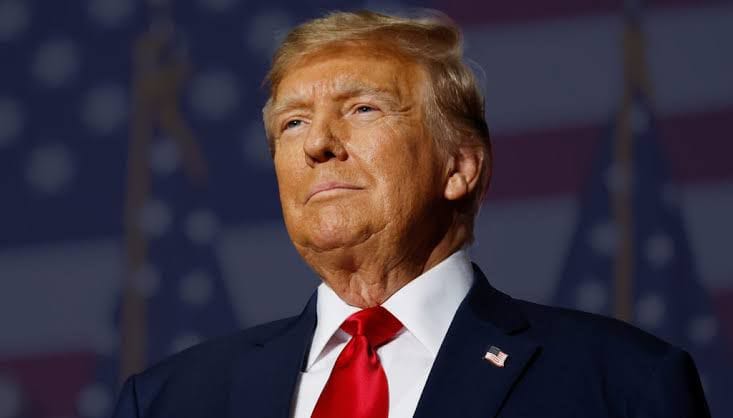US President Trump fires federal prosecutor Erik Siebert amid political pressure over Comey and James cases, raising questions about justice and independence.
US President Donald Trump on Saturday announced that he had fired a federal prosecutor, Erik Siebert, who had been under pressure regarding investigations into two of Trump’s prominent political adversaries.
The decision has stirred debate across political and legal circles about the independence of the Justice Department and the role of political influence in prosecutorial decisions.
Siebert’s Resignation and Trump’s Response
Erik Siebert, U.S. Attorney for the Eastern District of Virginia, informed his staff of his resignation through an email on Friday, according to The New York Times and other media outlets.
While some reports initially suggested Siebert resigned voluntarily, Trump quickly clarified that the dismissal was his decision. On his Truth Social platform, Trump wrote:
“Today I withdrew the Nomination of Erik Siebert as U.S. Attorney for the Eastern District of Virginia, when I was informed that he received the UNUSUALLY STRONG support of the two absolutely terrible, sleazebag Democrat Senators, from the Great State of Virginia. He didn’t quit, I fired him!”

Earlier in the Oval Office, Trump told reporters: “I want him out.”
Political Cases at the Center
The firing was closely linked to Siebert’s handling of two high-profile legal matters:
1. James Comey Investigation: Siebert declined to prosecute former FBI Director James Comey over allegations that he lied to Congress. Comey had previously led a probe into alleged collusion between the Trump campaign and Russia during the 2016 presidential election and remains a vocal critic of Trump.
2. Letitia James Lawsuit: New York Attorney General Letitia James filed a $464 million civil lawsuit against Trump, claiming he and his company inflated property values to obtain favorable bank loans and insurance terms. Siebert reportedly concluded there was insufficient evidence to bring charges against her.
Some officials within the administration reportedly argued that Siebert should remain in his role, warning that firing him could appear politically motivated. Despite this, Trump proceeded, citing the support Siebert received from two Democratic senators in Virginia as a reason for removal.
Siebert’s Career and Role
Erik Siebert is a Virginia Military Institute graduate and former Washington police officer. As U.S. Attorney for the Eastern District of Virginia, he oversaw a team of roughly 300 prosecutors.
The district, often called the “Rocket Docket,” handles fast-moving and high-stakes cases, including matters of national security and significant financial crimes. Siebert’s role placed him at the center of some of the nation’s most sensitive federal investigations, highlighting the importance of his dismissal.
Legal and Political Implications
Trump’s decision has reignited discussions about the independence of U.S. attorneys and the potential influence of political considerations on prosecutorial discretion. Legal experts warn that firing a federal prosecutor who declines to pursue politically sensitive cases could be seen as undermining the Justice Department’s impartiality.
Democratic lawmakers criticized the move as “unprecedented and alarming,” arguing that it threatens the rule of law. Supporters of Trump, meanwhile, frame the dismissal as a corrective action in response to perceived bias and political influence.
Trump’s Perspective
The former president has consistently criticized Comey, James, and other Democratic officials. Bill Pulte, a close Trump ally and director of the Federal Housing Finance Agency, has accused some of them of falsifying mortgage documents—a claim that has not led to charges.
On Friday, Trump commented about the James case: “It looks to me like she’s really guilty of something, but I really don’t know.” Such statements underscore the contentious political environment surrounding the firing.
Broader Context and Impact
The removal of Erik Siebert adds to a growing series of controversies surrounding Trump’s interactions with federal law enforcement. From the firing of Comey in 2017 to ongoing legal disputes over business dealings, Trump’s actions continue to attract scrutiny.
The firing also raises questions for the Justice Department about how it handles politically sensitive cases and the degree to which prosecutors can operate independently in high-profile investigations.
Trump’s decision to fire a federal prosecutor underscores tensions between political objectives and the independence of the U.S. justice system.
Siebert’s dismissal has provoked debate about prosecutorial discretion, the influence of political pressure, and the long-term implications for the Justice Department.
As legal and political analysts continue to monitor the situation, the firing is likely to remain a focal point in discussions about law, politics, and presidential authority.


